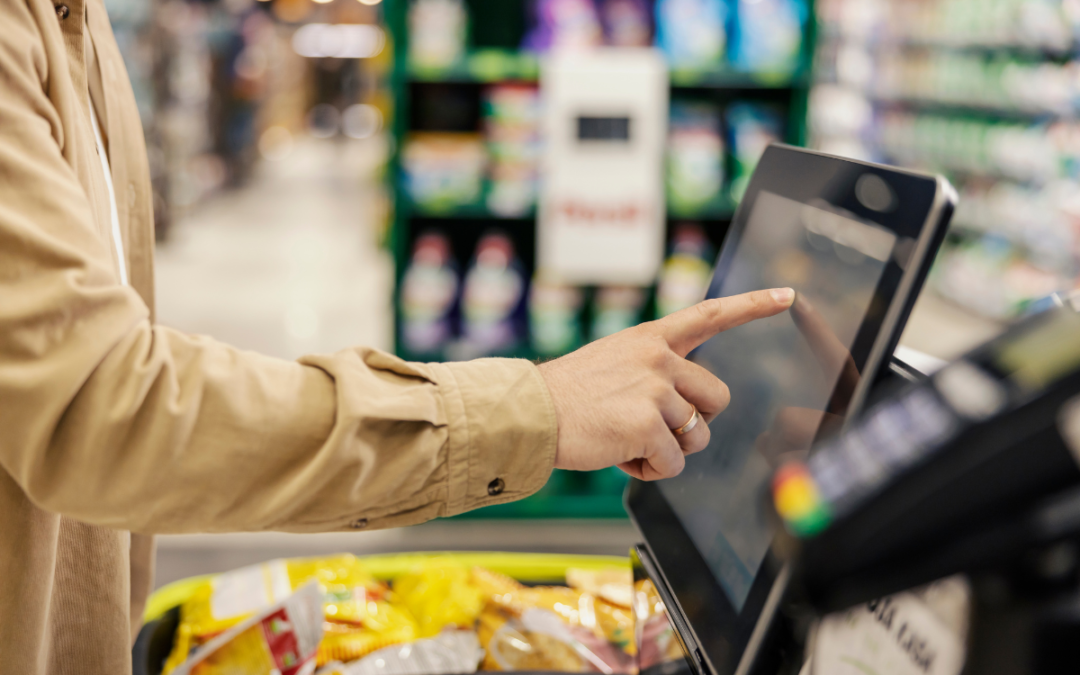There is little argument that there’s been a shift in emphasis in point-of-sale (POS) purchases over the past decade. At one time, it was all about the physical tills and the supporting computer hardware needed to run them. Equipment specs and design were front of every POS purchaser’s mind. Is it powerful enough for our needs? Will our staff be able to use it easily? Is it reliable? How and where will we install it?
Nowadays, the first thing most buyers consider is the type of software they want to run. This can be put down to the cloud revolution we’ve seen across computing in general. Everything is about app downloads, remote access and subscriptions. When someone else is ‘hosting’ a piece of software in some data centre somewhere, and all you need is an internet connection to run it, you don’t need to worry about installing it on your own on-premise hardware, and whether it’s powerful enough to run it efficiently.
Cloud computing has also made software much cheaper and much more readily available to small businesses in particular. With a whole host of affordable yet sophisticated app options to choose from, hardware has taken something of a back seat.
This is especially true in relation to POS. According to one survey, 71% of business owners who use POS believe that so-called ‘SoftPOS’ will eventually replace specialist POS terminals altogether. The thinking is that, with the option now to download POS software onto general-use devices like smartphones, there simply isn’t the need for bespoke equipment like checkout terminals and kiosks.
We can’t help thinking that this is jumping to conclusions. Yes, SoftPOS is an important trend in point of sale technology, and a lot of businesses enjoy the flexibility of being able to run functioning POS systems from any device. But from our perspective, it should be seen as an extra option that adds to the rich variety of choices now available to POS users, not as a replacement for everything that has gone before.
Why? Because there are still some very important ways in which specialised POS hardware beats the generic download option hands down. Here are some examples.
Handling more than payments
The argument for replacing traditional POS with software alternatives run on smartphones is built on a narrow definition of what POS is for – namely, taking payments. The idea is that, with a SoftPOS app on a smartphone, payments are set free. You can process a transaction from anywhere.
But this overlooks the fact that POS systems handle much, much more than just payments these days. Businesses rely on their POS for inventory management, for data gathering and analytics, for CRM and loyalty schemes. Even with the wonders of cloud computing, a smartphone just doesn’t have the compute capabilities to run all of these important functions reliably.
Durability
We all know what happens when you drop a smartphone. And when you are rushing around a busy customer-facing environment all day, accidents are bound to happen. Generic smartphones and tablets are simply not built with the rigours of all-day, every-day use in mind. Purpose-built mobile POS devices, on the other hand, are. They offer long-term durability and resilience which ultimately delivers a better ROI and ensures operations keep running smoothly.
Peripheral accessories
While it’s true that phone cameras can be used to scan barcodes, and we can anticipate a future where businesses simply stop printing paper receipts, there are plenty of other examples of peripheral POS hardware that you definitely cannot simply replace with a smartphone app. A glaring example is a cash drawer – the ‘all mobile’ SoftPOS vision is guilty of assuming that cash payments will become obsolete.
This also relates to the point that POS is about more than just payments. Peripheral hardware adds extra functionality to POS endpoints. This is most easily seen with kiosks. Self-service terminals are regularly deployed as multi-purpose solutions, with peripheral hardware such as card printers, biometric scanners and signature pads allowing kiosks to be used for everything from running loyalty schemes to ID checks.
